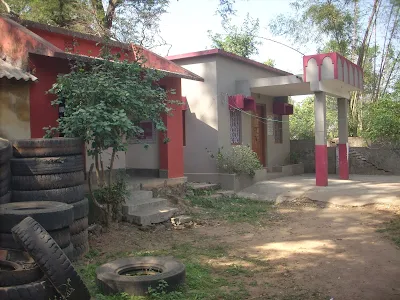“Civilization is the distance we put between ourselves and our own excreta.” - Brian Aldiss, The Dark Light Years
Indians are strange creatures as when we think of skills we are obsessed with IITs; when we think of health care we can scarcely think beyond doctors. At present, generally, the Indian has cleaning to the household level but is apathetic to the community where he lives. Even governments typically overspend on very high on expensive machines used in healthcare, at the expense of public goods such as community toilets, sewer pipes, low cost sanitary napkins etc. Despite of bad image of World bank among left in India, they will also agree with their suggestion of increased spendings of government on sanitation issue. India has already popular PPP model of community toilets and washroom in Sulabh Shauchalya.
November 19th is celebrated as the World Toilet Day to raise awareness on the use of toilet, sanitation and clean water. I was invited to a primary school with Block Development Officer (BDO) on this day a year before. I learn a lot on five ways for washing hands; waterborne disease & clean water for safe drinking. Ganjam district is ill-famous for open defecation in the whole Odisha. This was directed towards giving children information on area of water, sanitation and hygiene (WASH).
Knowledge alone though is not enough; it has to be complemented by actions to implement the most basic rules for prevention. Using evidence to guide massive social investment is crucial to ensuring the efficient use of limited resources. As per research of JPAL in Kenya , there is little evidence on whether existing water quality, sanitation, and hygiene (WASH) interventions lead to lasting improvements in children’s health, growth and development and whether nutrition programs are more effective when combined with WASH interventions.
Government machinery has funds under Individual Household Latrine (IHHL) for construction of toilets at household level. It requires 10% fund by the household while 90% are given by government in three phases. And, sanitation is seen only as seen as construction of new toilets without thinking about water facilities and waste management. Power builds consensus like nothing else. There is no democratic discussion in government meetings. Even infeasible orders are taken without looking either on the quality of construction work or utility to end user to achieve targets. Unless government at municipal doesn't think on the line of Reduce-Reuse-Recycle, there will be huge waste dumped without proper process.
There is quite little thinking on policy level on solid and liquid waste management, awareness regarding toilet usage, water storage, hand washing practices and acceptability of the total idea of sanitation. India really need a large social campaign to make people aware, working with them and explaining things of private hygiene to them. The reason is that sanitation is primarily a behavioural issue, to be undertaken by community and household for their own good. The role of government is only to facilitate this positive change by providing incentives and solution oriented approach in assisting people. Government is trying to work with children in schools and mothers through health clinics to educate them about hygiene behaviour. Such education initiative can help change behaviour and hygiene practices, it is a super slow process. The sanitation problem is so drastic and urgent that policies need to be set in place to drive behavioural change. There is need to have social norms regarding sanitation. Government need to listen the wise words of Samuel Johnson: "People need to be reminded more often than they need to be instructed.”




